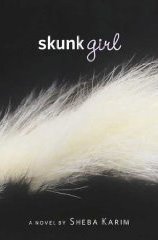Freelance writer, Donald Hubbard is a guest blogger today on Cayenne Lit with his insightful look into the great phenomenon that is Pakistani Writing in English (PWE). Here is his second post on the subject:
Reading the fiction of Pakistan is akin to coming up on an accident and we can’t avert our gaze––we must know what’s happened and who’s involved and what will happen next . . . are there any survivors? Pakistan is a riveting spectacle that demands our attention, with the always looming possibility of becoming a tragedy of Shakespearean proportions. Yet, we can’t look away. We must know why, we must look. We’re compelled to analyze the causes and search for meaning as we crane our neck to catch a glimpse of the carnage. It’s exciting and dangerous and we’re always glad it’s not us.
Today, as I write this, a mosque explodes along the fabled Khyber pass. How is a writer to respond to this level of tragedy? I begin to despair that maybe nothing will ever change. That this is Pakistan. I’m suddenly confronted with images of survivors clawing through the rubble, over and through the still warm bloody aftermath, weeping, wondering, looking about as if in a dream – questioning. The mosque leader exulting “God is Great” suddenly realizes: This is the end of everything. Within the crumbling walls of that small mosque we get a microcosmic view of Pakistan’s troubled relationship with the rest of the world. The women anxiously waiting for news of loved ones. The hauled out bodies covered in dust and blood. That only these will be the unbearable realities we write about.
But there are other stories to tell, because Pakistan is not merely militants and exploded mosques. The best of the PWE urgently implores us to witness another side of the story. Yes, there are widows who sift through the rubble for a piece of the past to hold onto, but ultimately they endure – they prevail. There are the survivors who experience loss but still move inexorably forward, day by day, from event to response, dust to dust. There are victims of all types, from the suicide bomber and those he kills, to the deranged general and those he oppresses, to the venal politicians and those that suffer hunger and thirst, to the very land that trembles with bomb blasts and marching armies.
So if we are to truly understand Pakistan, it will be explained to us best through its fiction. By the startling range and depth of the novels of Shamsie, Hamid and Hanif. By encountering moments of perfection in Daniyal Mueenuddin’s brilliant book of short stories In Other Rooms, Other Wonders. And we begin to sense that there is indeed more to Pakistan than what we see in the news footage and videos of burning buildings and obscene rubble, beyond the carnage and destruction and grief and sadness and loss. There is something deeper, profound. There is a yearning for validation and a desire to simply exist in peace. That even in the midst of this existential state of impending peril can be found stories filled with wonder, beauty, and humour.
There are stories of the sameness that link us with common bonds of humanity that stretch across time and continents and cultures; the same genetic hardwiring that produces such shared realities as karma and martyrdom and grace and redemption. These stories, the story of Pakistan, are worth telling. They must be told. Like Arissa Illahi, the heroine in Shaila Abdullah’s exquisite short novel Saffron Dreams, the time has come to throw off the veil, real and metaphorical, let it drift down on the winds of change and be swept away in the currents of history. The time is now to finally awaken, to reinvent.
The time has come for Pakistan and its people, whether inside its chaotic borders or in the diaspora, to be treated as more than just 1947 and Partition and a derogatory definition of midnight’s stepchild. And the time has come, finally, to celebrate its burgeoning fictional landscape, the beginning of a new love affair – mature and thriving – that’s writing itself out from the shadow of the mighty Rushdie and has thrown down the gauntlet to a new generation of Indian Writers in English. The writers of PWE can no longer be treated as literary stepchildren – they have found, through vision heart and sheer talent, a unique and beautiful voice of their own.
About Donald Hubbard
Donald Hubbard has always been fascinated with other cultures, places and peoples. A well-read student of U.S. foreign policy with an area of expertise in South Asia, his natural curiosity and research led him to a specific interest in the troubled country of Kashmir, which was introduced to him in the 1980s after reading Salman Rushdie’s Midnight’s Children. Since that time his love affair and particular affinity for the land and its people has become something of a curious obsession. He is currently at work on a novel set in Kashmir. As a book collector, autodidact and avid reader, his personal library has grown over the past twenty-five years and is now approaching 1800 volumes of modern literary fiction, nonfiction (especially current events and world politics/history), Kashmir history and fiction, religious history, science, and world literature with an emphasis on post-colonial Indian literature.






